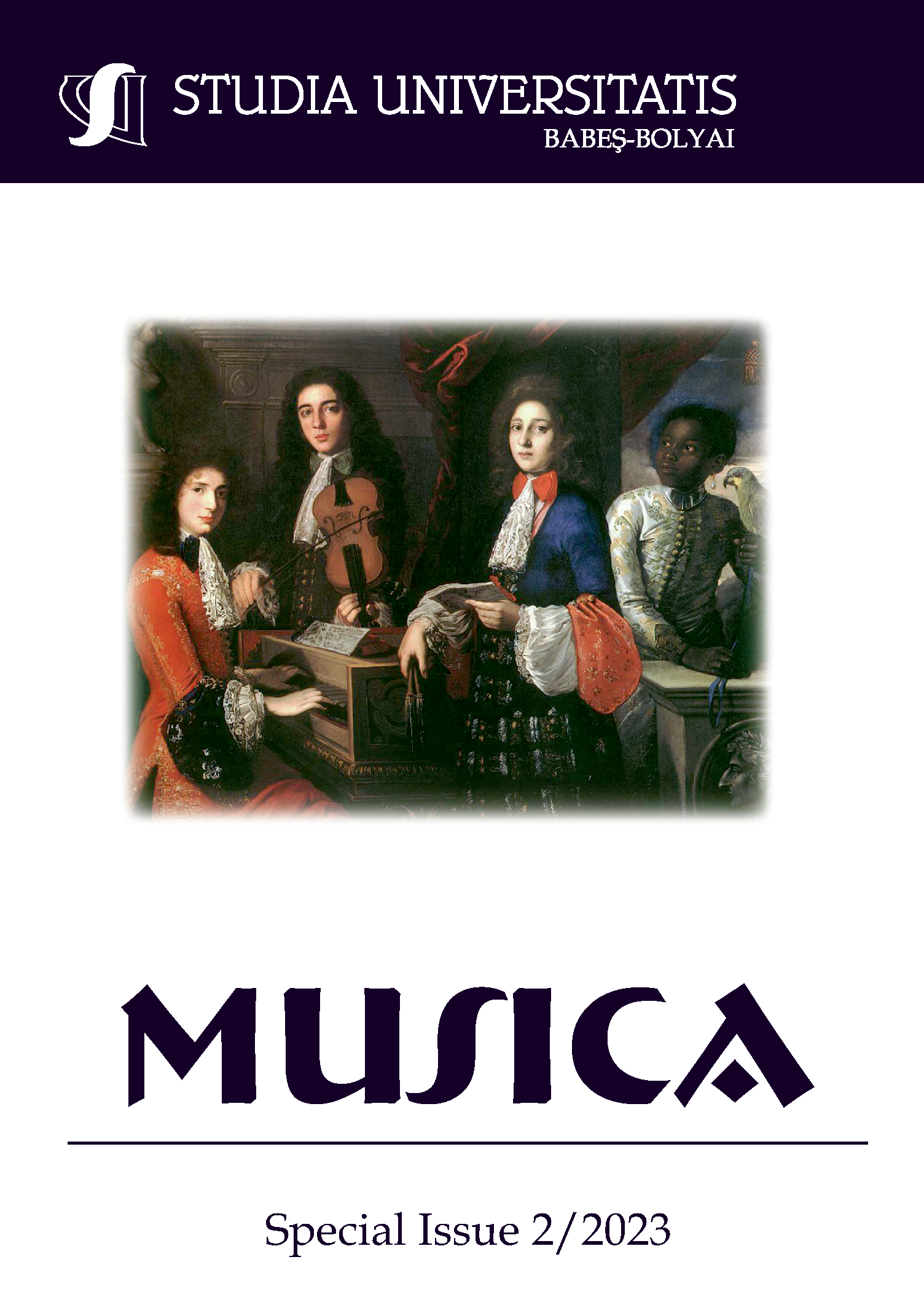THE VARIANT METHOD OF COMPOSITION IN THE VOCAL WORKS BY FRANZ LISZT
DOI:
https://doi.org/10.24193/subbmusica.2023.spiss2.18Keywords:
variant method, variant form, vocal creativity, composition, the principle of thematic development.Abstract
The article is devoted to a variant method of composing music, which became widespread in the composing practice of the twentieth century and has genetic links with the work of Franz Liszt. The variant method is presented as the basis of the composer’s artistic system, as a property of musical logic and form formation. During the functional and structural analysis of the songs of F. Liszt, their typological similarity is revealed, and a classification based on the variant principle of thematic development is proposed. The characteristic of variant-strophic (“An Edlitam” (S. 333; LW. 74)) and variant-phase (“Gebet” (S. 331; LW. №72)) forms is given. The relationship between monothematism and the variant method of composition is revealed. As a result, the genetic connection between the vocal miniature of F. Liszt and the musical art of the 20th century is substantiated. The variant method is presented as a system-forming method at all levels of musical and poetic composition (motif-composition-image-drama-way of thinking).References
Borshuliak, Alona. The semantics of Franz Liszt’s piano threnodies within the concept of passion. Studia Universitatis Babes-Bolyai - Musica, Issue 1/65, 2020, p.169‒182.
Bozó, Peter. Liszt as a Song Composer, 1839-1861, Space, Time, Tradition. Studies Undertaken at the Doctoral School of the Budapest Liszt Academy, Budapest, Rózsavölgyi és Társa, 2013, p.149‒179.
Echardt, Maria ‒ Mueller, Rena Charlin – Walker, Alan. Franz Liszt, Works. The New Grove Dictionary of Music and Musicians. 14 (7th ed.), London & New York, Macmillan, 2001.
Goriukhina, Nadiya. Essays on questions of musical style and form. Kiev, Musical Ukraine, 1985.
Gut, Serge. (ed.) Actes du Colloque international Franz Liszt. La RM triple numéro 405-406-407. Paris, R. Masse, 1987.
Gut, Serge. F. Liszt. Les éleménts du langage musical, Bourg-la-Reine, Editions Aug, Zurfluh, 2008.
Hamburger, Klara. Franz Liszt, Budapest, Corvina, 1973.
Hamburger, Klara. Franz Liszt: Leben und Werk. Köln, Weimar, Wien, Böhlau Verlag, 2010.
Hansburg, Grigory. et al., Franz Liszt and the problems of the synthesis of arts. Kharkov: RA – Caravel, 2002.
Searle, Humphrey. Franz Liszt, Works. Grove’s Dictionary of Music and Musicians, 5 (5th ed.), London, Macmillan, 1954, p. 263–314.
Searle, Humphrey. Franz Liszt [Catalog of Liszt’s Compositions]. Chopin, Schumann, Liszt. The New Grove Early Romantic Masters, 1. Revised by Winklhofer, Sharon, New York & London, W. W. Norton, 1985, p. 322–368.
Searle, Humphrey. ‘Franz Liszt, Works’ in The New Grove Dictionary of Music and Musicians, 11 (6th ed.), London & New York, Macmillan, 1980, p. 51–57.
Verba, Oksana. On the typological foundations of the variant form, Kyiv musical knowledge, Issue 5, 2000, p. 29–37.
Walker, Alan. Franz Liszt, I, The Virtuoso Years, 1811-1847, New York, A. Knopf, 1983.
Downloads
Published
How to Cite
Issue
Section
License
Copyright (c) 2023 Studia Universitatis Babeș-Bolyai Musica

This work is licensed under a Creative Commons Attribution-NonCommercial-NoDerivatives 4.0 International License.



